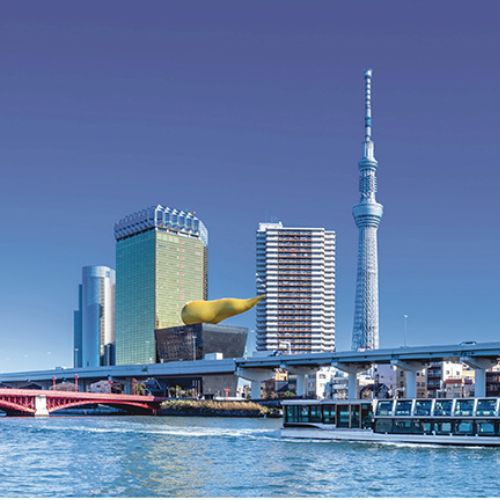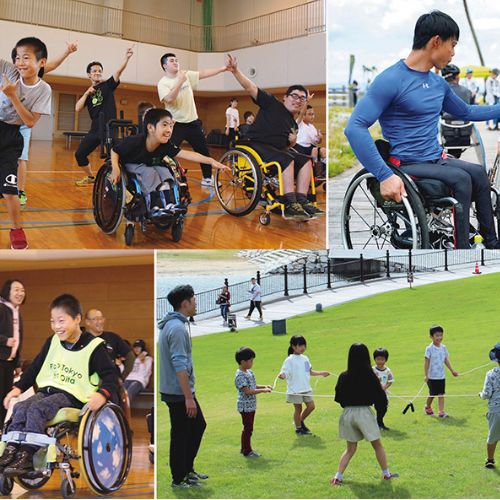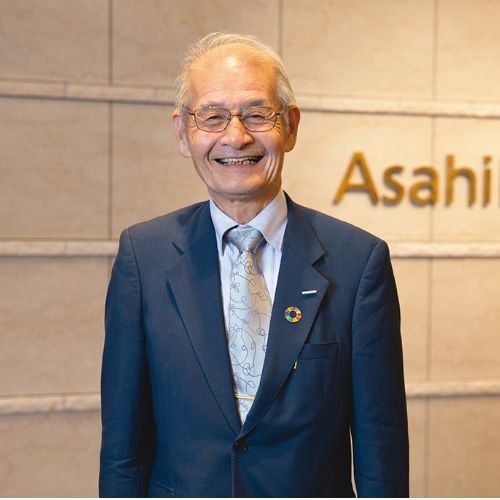The Nobel Prize for Chemistry in 2019 was awarded to Japanese scientist YOSHINO Akira and two other scientists developing lithium-ion batteries for their contributions to the realization of a mobile society. Lithium-ion batteries are a technology that is greatly expected to play an important role in solving environmental problems.
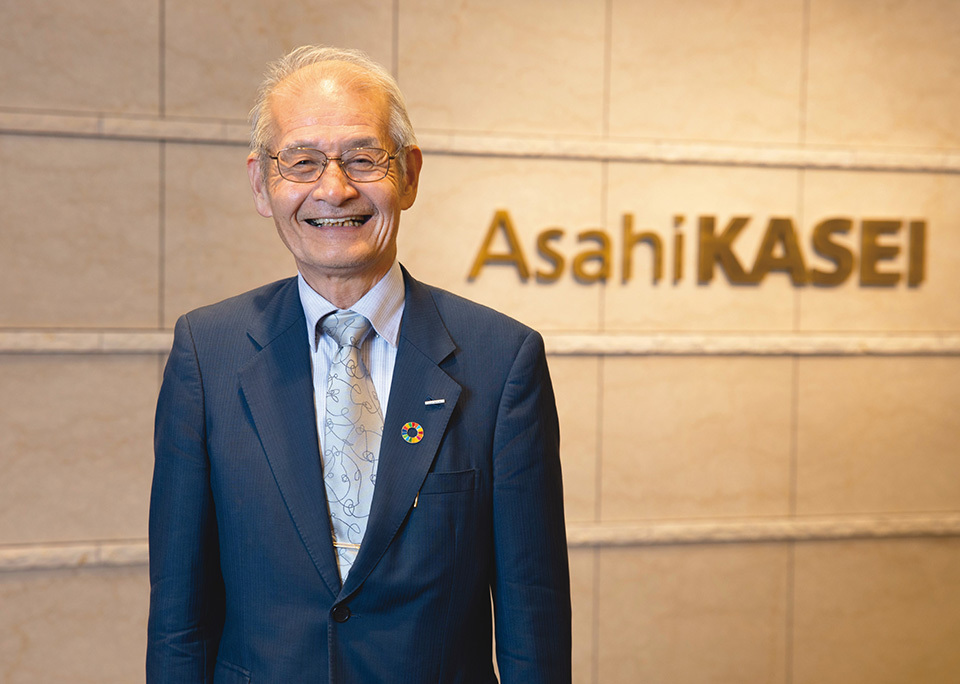
After completing his master’s course at Kyoto University, Yoshino joined Asahi Kasei, a major material manufacturer. The company succeeded in developing lithium-ion batteries by engaging in research on new secondary batteries. In 2019, he was awarded the Nobel Prize in Chemistry along with Dr. John B. Goodenough and Dr. Stanley Whittingham.
Small, lightweight, and safe, lithium-ion batteries have contributed significantly to the popularization of mobile IT. Amid the need to reduce CO2 emissions, electric vehicles equipped with lithium-ion batteries will also become more widely used.

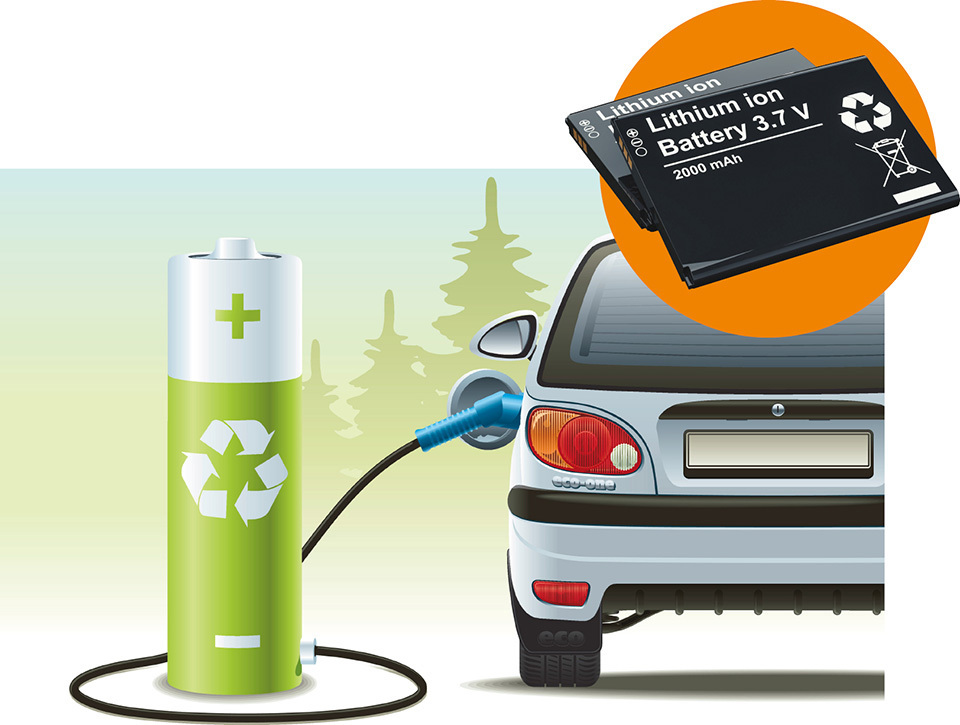
The Nobel Prize for Chemistry in 2019 was awarded to the developers of new secondary batteries (batteries that can be recharged and reused) that are essential for our daily lives. The lightweight, safe, rechargeable lithium-ion batteries created by Dr. YOSHINO Akira, an honorary fellow of Asahi Kasei Corporation, and others led the Information Technology (IT) revolution of the late 1990s, especially the dissemination of mobile IT equipment such as mobile phones and laptop computers, and changed the lives of people around the world.
This technology is now spreading to electric vehicle batteries and large-scale rechargeable batteries, which are indispensable for the popularization of renewable energy, leading to high expectations for the realization of a fossil-fuel-free world. “Normally, winning the Nobel Prize would be the goal of research, but it was a great honor for the batteries to have also been included in a second race dubbed the ‘Challenge to Environmental Problems,’” Yoshino says with a smile.
Yoshino’s development of lithium-ion batteries started with the use of an electrically-conductive plastic called polyacetylene, which was created in 1981 by Nobel Prize laureate Dr. SHIRAKAWA Hideki, as the anode. The breakthrough came with using lithium-cobalt oxide as a material for the cathode, and later using carbon for the anode. In this way, Yoshino succeeded in developing a battery that can generate a high voltage, and completed the world’s first prototype lithium-ion battery. He then conducted safety tests for commercialization and confirmed that there were no ignition issues.
Nevertheless, it took about 10 years from the initial development in 1985 until the lithium-ion batteries gained popularity on the market. While waiting for the moment to arrive and continuing to make modifications, Yoshino sensed a particular scent—an indication of the IT revolution—had begun to gain momentum. “Would I describe this as a scent? What is important is to set the goal of contributing to society. We must think about what the world wants (needs) five or 10 years from now and think about the technology (seeds) for that purpose. I didn’t give up because I could strongly sense this scent that lithium-ion batteries were reaching a society that extensively needed this technology.”
Yoshino’s sense of trend is now detecting signs of a new revolution. “Technologies that make energy use more efficient, such as artificial intelligence and the Internet of Things (IoT), are rapidly evolving. When these technologies and batteries are well combined, the revolution in environmental and energy technologies, or the ET revolution, will occur.”
Lithium-ion batteries, which have supported the mobile society, will play a central role in the imminent realization of a sustainable society. While there are still improvements to be made, such as in terms of cost and energy density, and most significantly durability, Yoshino maintains his hope for the younger generation. “I want them to take on risks with courage. There are many unknown fields. Even in lithium-ion batteries, there are parts where basic research has been neglected. If young people return to the starting point and study while others go forward, they will certainly be able to discover great treasures.”
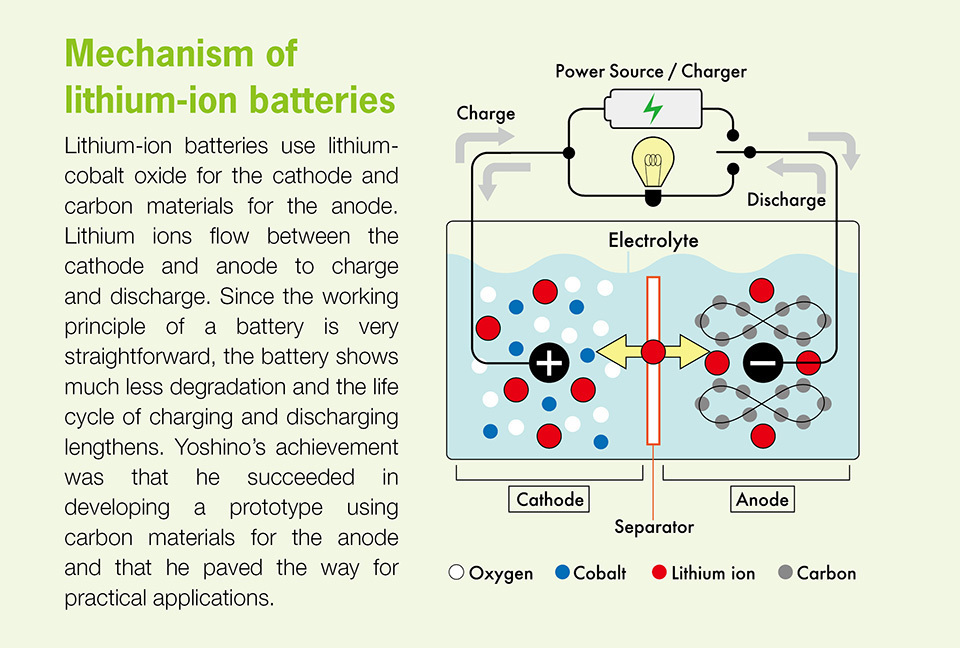
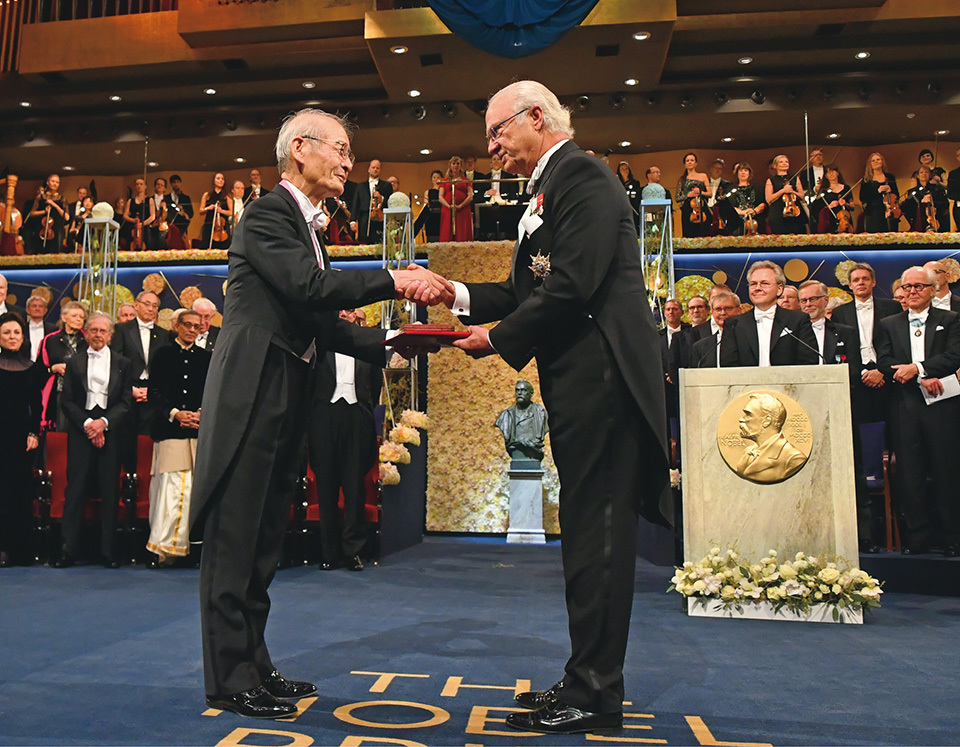
The Nobel Prize award ceremony took place on December 10, 2019, and Yoshino was awarded the Nobel Prize. At the lecture, he asserted that “a sustainable society that balances solving environmental problems with economics and convenience can undoubtedly be realized very soon, and lithium-ion batteries will play a central role.”


























